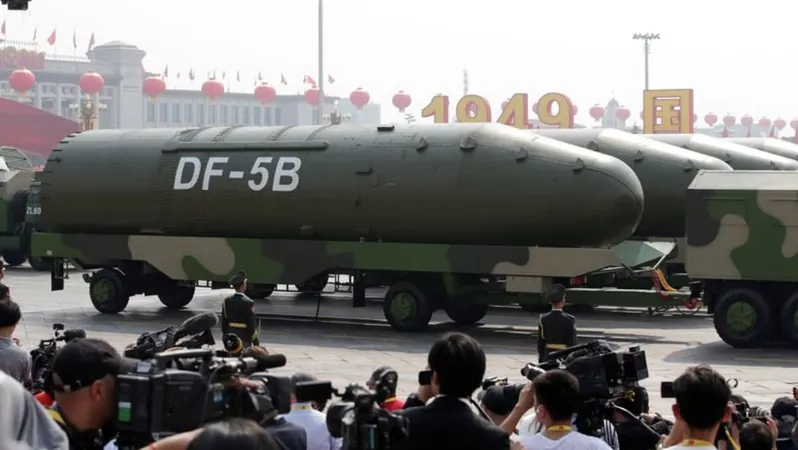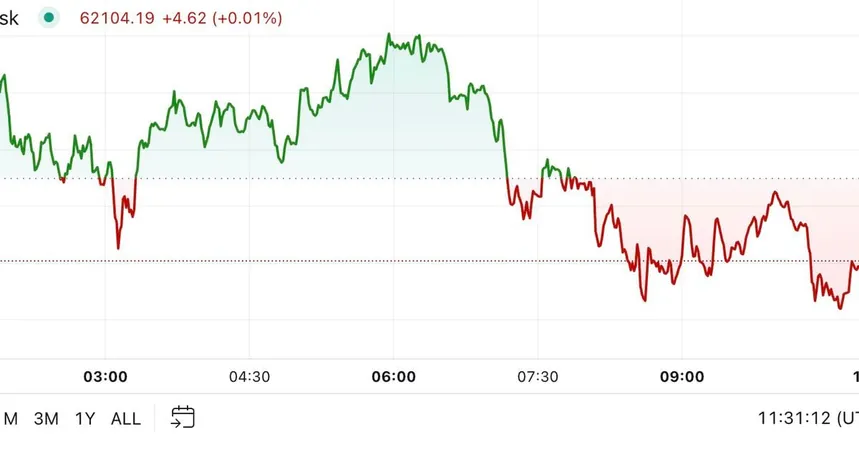
Most Taiwanese Believe China Unlikely to Invade in Next Five Years, Poll Reveals
2024-10-09
Author: Sarah
Recent Poll Shows Majority of Taiwanese Unworried About Immediate Chinese Invasion
A recent poll conducted by Taiwan's leading military think tank indicates that a majority of Taiwanese feel that a Chinese invasion is unlikely over the next five years. This reflects a complex sentiment where citizens acknowledge China as a significant threat, despite the absence of imminent fears of aggression.
Increased Military Activity from China
Over the last few years, China has notably increased military activity around Taiwan, viewing the democratic island as a breakaway province rather than an independent entity. The poll, conducted by the Institute for National Defence and Security Research (INDSR), surveyed approximately 1,200 individuals last month. It revealed that a substantial 61% of respondents consider an attack from China to be "unlikely or very unlikely."
Public Sentiment Amid Intelligence Warnings
Christina Chen, a researcher at INDSR, pointed out that most Taiwanese do not expect China's territorial ambitions to result in direct military action against Taiwan. However, the populace remains wary of various forms of intimidation from China, such as military exercises and extensive propaganda efforts. The timing of the poll is particularly poignant given contrasting viewpoints from international intelligence. The head of the U.S. Central Intelligence Agency had previously indicated that Chinese President Xi Jinping has directed military preparedness for a potential invasion by 2027. Despite these warnings, the INDSR findings suggest that the Taiwanese public is aware of the risks yet remains calm and rational in their assessment of the situation.
Willingness to Resist and Mixed Confidence in Armed Forces
Interestingly, the survey showed that over 67% of respondents would be willing to resist Chinese aggression if an attack were to occur. However, opinions were deeply divided on the capability of Taiwan's armed forces to defend the island, with half of those surveyed expressing confidence while the other half did not.
Need for Enhanced Defense Systems
Lee Kuan-chen, another INDSR researcher, emphasized the necessity for Taiwan's military to enhance its defense systems to foster public trust. The poll also highlighted varied expectations regarding U.S. involvement should a conflict arise. Approximately 74% of respondents believed that the United States would indirectly assist Taiwan through the provision of resources and armament, yet only 52% felt confident that U.S. military forces would physically intervene.
Transparency in U.S.-Taiwan Relations
In the context of U.S.-Taiwan relations, Lee recommended a more transparent approach from Taiwan's government regarding security cooperation. "This transparency will ensure that the populace maintains realistic expectations regarding U.S. support," he stated.
Navigating Geopolitical Tensions
The dynamics of this situation have been made more complex with U.S. President Joe Biden's comments, which suggest a stronger stance on defending Taiwan, unsettling Beijing and significantly shifting from the traditional U.S. policy of "strategic ambiguity." As tensions in the Taiwan Strait continue to evolve, it will be crucial for Taiwan to bolster not only its defense capabilities but also international collaborations, while maintaining a delicate balance of public perception and awareness concerning potential threats from China. The question remains, can Taiwan navigate these geopolitical waters without compromising its sovereignty or triggering the very conflict it seeks to avoid?



 Brasil (PT)
Brasil (PT)
 Canada (EN)
Canada (EN)
 Chile (ES)
Chile (ES)
 España (ES)
España (ES)
 France (FR)
France (FR)
 Hong Kong (EN)
Hong Kong (EN)
 Italia (IT)
Italia (IT)
 日本 (JA)
日本 (JA)
 Magyarország (HU)
Magyarország (HU)
 Norge (NO)
Norge (NO)
 Polska (PL)
Polska (PL)
 Schweiz (DE)
Schweiz (DE)
 Singapore (EN)
Singapore (EN)
 Sverige (SV)
Sverige (SV)
 Suomi (FI)
Suomi (FI)
 Türkiye (TR)
Türkiye (TR)